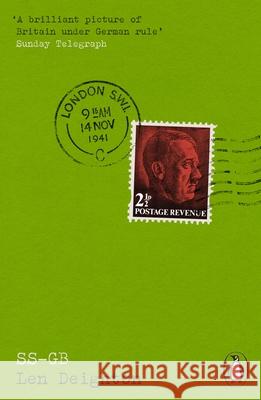SS-GB » książka
topmenu
SS-GB
ISBN-13: 9780241639238 / Angielski / Miękka / 2023 / 352 str.
SS-GB
ISBN-13: 9780241639238 / Angielski / Miękka / 2023 / 352 str.
cena 50,28
(netto: 47,89 VAT: 5%)
Najniższa cena z 30 dni: 50,16
(netto: 47,89 VAT: 5%)
Najniższa cena z 30 dni: 50,16
Termin realizacji zamówienia:
ok. 8-10 dni roboczych.
ok. 8-10 dni roboczych.
Darmowa dostawa!
Kategorie:
Wydawca:
Penguin Books Ltd
Seria wydawnicza:
Język:
Angielski
ISBN-13:
9780241639238
Rok wydania:
2023
Ilość stron:
352
Wymiary:
19.8 x 12.9
Oprawa:
Miękka











